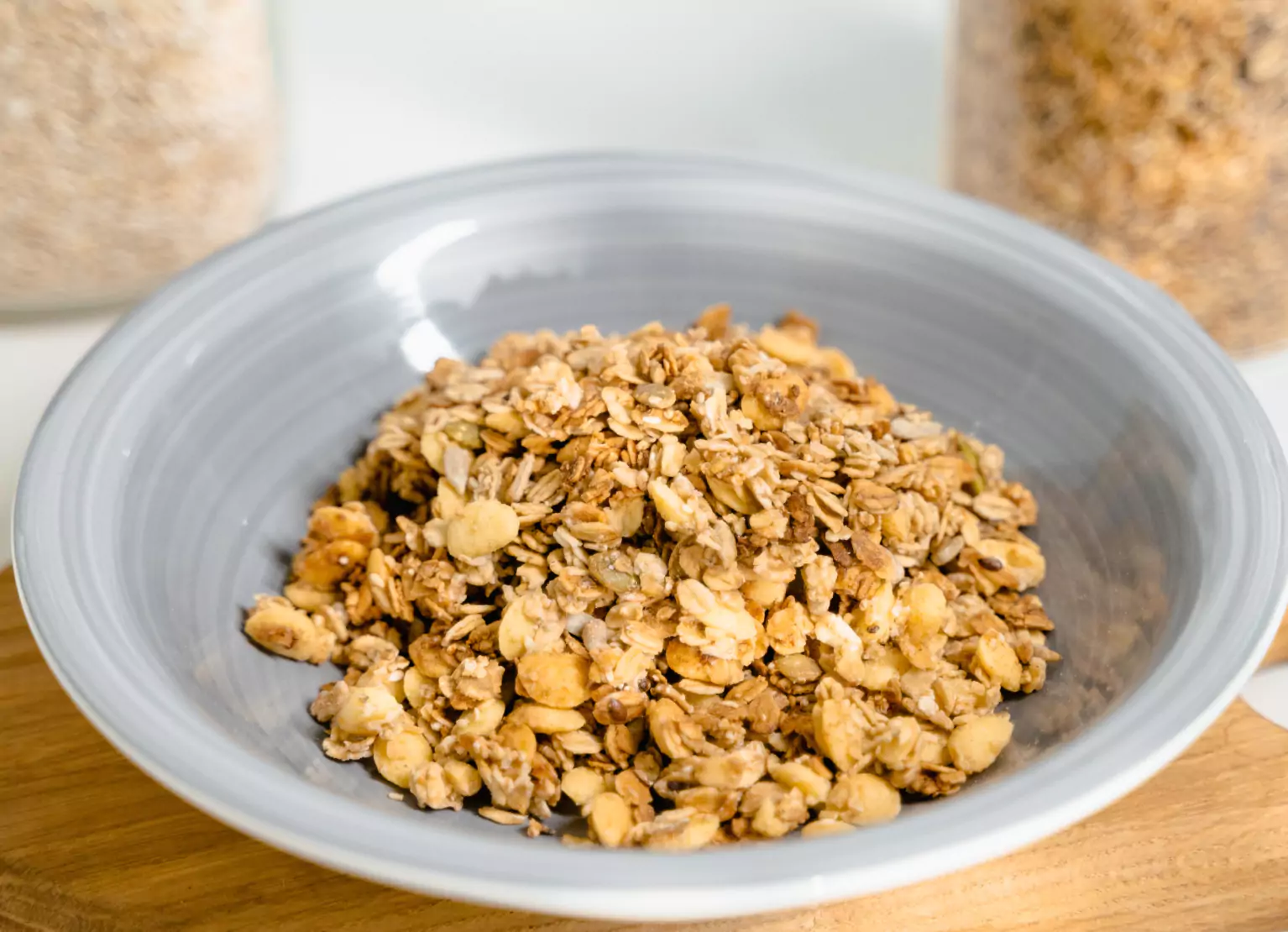
Oatmeal is a versatile and nutritious dietary staple across many cultures, and has been around for centuries. Made out of oats, which are whole grains that have been ground into meal and then hulled and flattened, oatmeal is full of important vitamins and minerals, and is a great source of fiber.
There are many different ways to eat oatmeal, but the most common method is to cook it in water or milk and then add toppings like nuts, seeds, honey, or fruit. Oats can also be eaten cold in the form of overnight oats, baked into various sweet treats, or even eaten as a savory snack with things like eggs and vegetables.
You may have always considered oatmeal to be a healthy breakfast option, but is it really that good for you? Let’s break down the different components of oatmeal and find out.
The Important Components of Oatmeal

Oats are high in many important nutrients, including fiber, protein, antioxidants, and many different vitamins and minerals. Many studies show that including oats in the diet can help lower LDL cholesterol and can be beneficial for cardiovascular health, meaning that certain people at risk for high cholesterol or heart disease may benefit from including oats in their diet regularly.
Let’s have a look at the nutrients found in oats and what role they play in our overall health and wellness.
Fiber
Fiber is a type of carbohydrate found in things like fruits, vegetables, and grains. The body cannot digest fiber, so instead, it passes through the body undigested, helping to add bulk to the stool and keeping the digestive system healthy.
Fiber helps keep you feeling full after eating, and can also help regulate blood sugar levels. Just one half cup serving of steel cut oats contains 8 grams of fiber.
Protein

Protein is an essential macronutrient that is involved in virtually every bodily process. It plays an important role in growth and development, immune function, tissue repair, and much more.
Oatmeal is a good source of protein compared to other whole grains, with one half cup of steel cut oats providing 10.5 grams of protein.
Antioxidants
Antioxidants are molecules that may prevent or delay cell damage. They do this by scavenging free radicals, which are reactive molecules that can damage cells. Too many free radicals can lead to oxidative stress, which has been linked to conditions like heart disease and cancer.
Though older studies suggested that there may be health benefits to increasing your intake of antioxidants, more research is still needed to determine the exact impact antioxidants have on our health. Antioxidant-rich foods also contain many important vitamins and minerals which are important to include in your diet.
Oats contain high levels of avenanthramides, a type of antioxidant that is shown to have anti-inflammatory properties.
Vitamins and Minerals
In order to maintain a healthy lifestyle, it is important to understand the role that vitamins and minerals play in keeping our bodies functioning properly. These organic compounds are essential for human health, and each has a specific function in the body.
Oatmeal is a good source of vitamins such as thiamin, riboflavin, niacin, and vitamin B6. It also contains minerals like calcium, iron, magnesium, phosphorus, potassium, and zinc, all of which work together to support a healthy immune system and metabolism.
The Health Benefits of Oats and Oatmeal

Oats and oatmeal are not only delicious, but they're also packed with nutrients. From reducing cholesterol to promoting gut health, oats are a nutritious addition to your diet. They're packed with fiber, protein, vitamins, and minerals, and have been linked to a host of other health benefits.
Here's a look at some of the science-backed benefits of eating oats and oatmeal.
Reducing Cholesterol
Are you looking for a way to reduce your cholesterol? If so, you may want to consider adding oatmeal to your diet. Studies have shown that oatmeal may help lower cholesterol levels.
Oatmeal is a whole grain that contains soluble fiber, which has been shown to reduce cholesterol levels. In addition, oatmeal is low in saturated fat and sodium, two other factors that can contribute to high cholesterol levels. So if you're looking for a natural way to lower your cholesterol, starting your day with a bowl of oatmeal is one thing you might consider trying. Your heart will thank you!
Gut Health and Digestion

If you're looking for a gut-healthy breakfast option, oatmeal is also a great choice. The soluble fiber found in oatmeal helps bulk up stool and make it easier to pass. They also contain beta-glucan, a type of fiber that has been shown to feed the good bacteria in your gut and has been found to be beneficial to the treatment of diabetes and cardiovascular complications.
Oats also contain avenanthramides, which are compounds that have been shown to soothe the digestive tract. Plus, oats have anti-inflammatory properties which may help with digestion. So if you're looking for a natural way to ease digestive issues, try adding oatmeal to your diet.
Blood Glucose Control
Oatmeal can be a good choice for people with diabetes because it has a low glycemic index. As a high-fiber food, oatmeal may help reduce blood glucose spikes, while also being low in calories and satiating. This means that it typically will have a smaller impact on blood sugar levels compared to refined carbs such as breakfast cereals and bread.
While research has found positive evidence to support that eating oatmeal can help to control blood glucose levels, it’s important to note that some people may respond differently to certain types of foods. Eating uncooked rolled oats sprinkled on top of plain Greek yogurt is one way to blunt potential glucose spikes, as uncooked oats contain higher levels of resistant starch.
Steel cut oats and rolled oats may be better options for individuals with diabetes or anyone looking to promote better glucose curves, as other varieties such as instant oats are more processed and often contain added sugar.
Weight Loss

If you're looking to cut down on calories and lose weight, oatmeal is a great breakfast option. Oats are packed with fiber, which helps keep you feeling full longer and can aid in weight loss.
Whole grains such as oats have been suggested to help lower the risk of weight gain and may be associated with lower levels of obesity, according to another study. Adding oats to your diet is also linked to a lowered risk of cardiovascular disease and type 2 diabetes, which are two conditions often associated with obesity.
Skin Care
You may think that oatmeal is only good for breakfast, but it can also be a great tool for skin care. Oatmeal has many benefits for the skin, such as reducing inflammation, soothing irritated skin, and helping to get rid of acne.
When used topically, oatmeal can help soothe and protect the skin from environmental elements that can cause irritation. In addition, oatmeal is a natural exfoliant, which means it helps remove dead skin cells to reveal a brighter, more radiant complexion.
If you're looking for an all-natural way to improve your skin care routine, consider using oatmeal as part of your regimen. It’s often found in beauty products and certain lotions due to its anti-inflammatory properties.
Integrating Oatmeal Into Your Diet

You may think of oatmeal as a breakfast food, but it can be integrated into a healthy diet in many different ways, making it a great addition to any meal or snack.
Varieties like instant oatmeal, steel-cut oats, and old-fashioned oats are some of the most common types of oatmeal. To enjoy this meal and avoid potential blood sugar spikes, opting for the least-processed version you can find (steel cut oats) is advisable.
Oatmeal can also be enjoyed with a mix of different nutritious toppings such as fresh fruit, chia seeds, flaxseed, or nuts that can add both extra flavor and important nutrients.
Many flavored instant oatmeals contain added sugars, which may lead to blood sugar spikes and energy crashes later in the day. Sweet toppings such as honey or sugar should be used with caution when possible to avoid blood sugar fluctuations, however this effect can be minimized by adding a protein source such as protein powder, plain Greek yogurt, or pairing your oatmeal with a side of eggs.
Because oats are also quite calorie-dense, it's important to be mindful of your portion sizes: the recommended serving size for oatmeal is one half cup of cooked oats.
Engage with Your Blood Glucose Levels with Nutrisense
Your blood sugar levels can significantly impact how your body feels and functions. That’s why stable blood glucose levels can be an important factor in supporting overall wellbeing.
With Nutrisense, you’ll be able to track your blood glucose levels over time using a CGM, so you can make lifestyle choices that support healthy living.
When you join the Nutrisense CGM program, our team of credentialed dietitians and nutritionists are available for additional support and guidance to help you reach your goals.
Ready to take the first step? Start with our quiz to see how Nutrisense can support your health.
Find the right Nutrisense programto help you discover and reach your health potential.

Carlee's training at Western Illinois University and an internship at the Memphis VA Hospital lead her to a career in outpatient counseling and bariatric nutrition therapy. In these positions, Carlee realized many of the disease states (upwards of 80%!) her patients experienced were actually preventable. She knew she had to dig deeper into preventative health and has since been passionate about helping people translate this complex glucose data into actionable changes anyone can implement into their everyday lives.




